Who Set the Sky on Fire? Brits Are Baffled as Sky Turns RED Over UK – But There’s a Simple Explanation
British stargazers are stunned by an almost apocalyptic sight in the sky.
All over the country people watched in amazement as the sky, sun and moon turned a deep red.
Avid stargazers took to social media to share photos of the strange event, with one astonished commentator calling it “completely insane and creepy.”
Before you panic and think that the red sky could be a sign that the world is about to end, fortunately there is a simple explanation.
Experts say the sudden change in Britain’s skies is being caused by wildfires raging more than 4,000 miles away in North America.
Stargazers in the UK were treated to stunning sunsets this weekend, with the sun itself appearing to turn bright red, as pictured here over St Albans

On social media, some commentators reacted with bewilderment when the sun appeared to change color without any explanation on Sunday
On Sunday, many people across the country were surprised to see the sun suddenly turn dark red, seemingly for no apparent reason.
One stargazer wrote on X that the sun “literally turned red at sunset,” adding that he had “never seen anything like it in my life.”
Others reported seeing ‘unreal’ sunsets from Portsmouth to Birmingham.
While this is certainly a rare occurrence, there is nothing unnatural about these strange visions.
Met Office spokesperson Andrea Bishop told MailOnline: ‘Vivid and dramatic sunrises and sunsets have been seen across the UK, partly due to a layer of bushfire smoke in the upper atmosphere over the weekend.’
This summer, wildfires raged across the US and Canada, sending massive amounts of smoke particles into the upper atmosphere.
Ms Bishop added: ‘Smoke particles from wildfires over the Atlantic have been carried by the jet stream.’
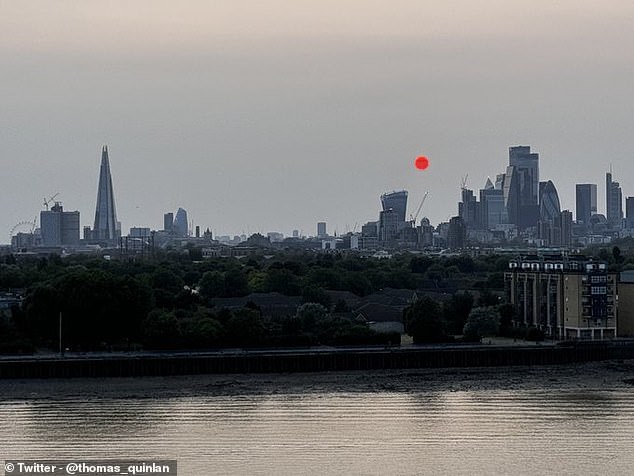
Over London, stargazers saw the sun dramatically change colour in the afternoon, taking on a strange red appearance
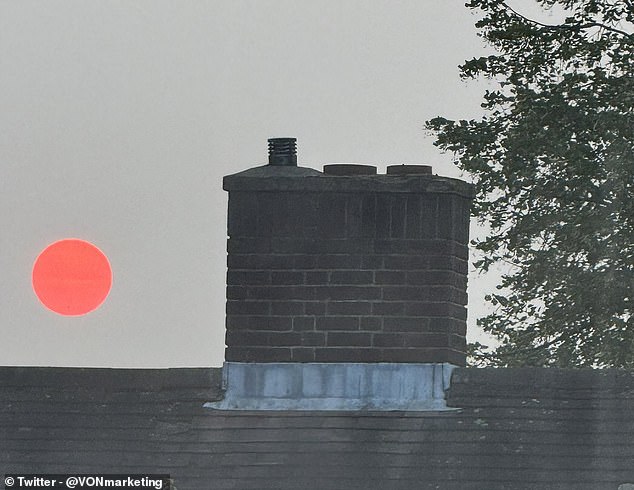
These images of the red sun were caused by the accumulation of smoke particles from North American wildfires in the upper atmosphere, as shown here in Manchester.
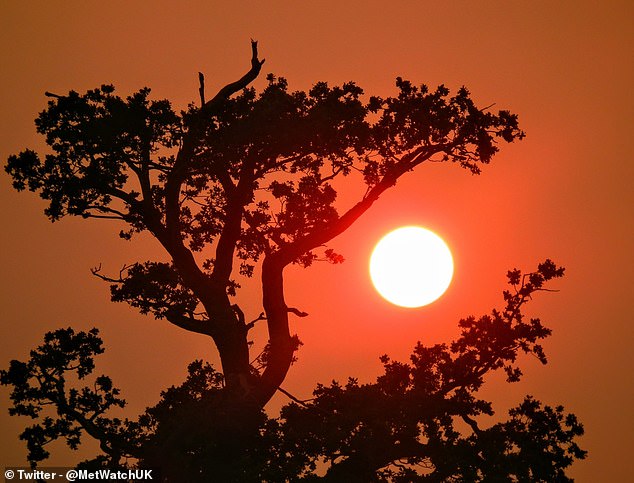
This photo, taken in Birmingham, shows how smoke in the atmosphere scatters shortwave light, so that we can only see the red part of the spectrum
The jet stream is a fast-flowing current hundreds of kilometers wide that runs at an altitude of about eight to ten kilometers above the Earth.
The smoke that reaches the UK is carried by the polar jet stream. This jet stream is created by the collision of cold air from the north and warm air from the south.
This current changes in intensity and direction throughout the year, but currently blows directly from North America to Britain, causing smoke particles to build up in the atmosphere.
Fortunately, these particles are too high to pose a health hazard, but they do make for strange and spectacular sunsets.
When light from the sun reaches Earth, it contains a relatively even balance of frequencies from the visible spectrum.
However, when that light collides with smoke particles in the air, some of the light is scattered. This process is called diffusion.
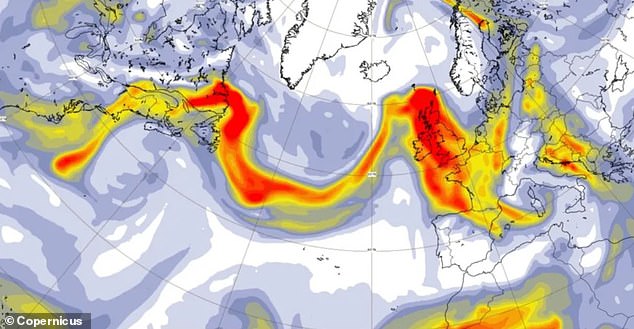
This image from the Copernicus weather satellite shows how the smoke in the jet stream will move tonight at 6pm
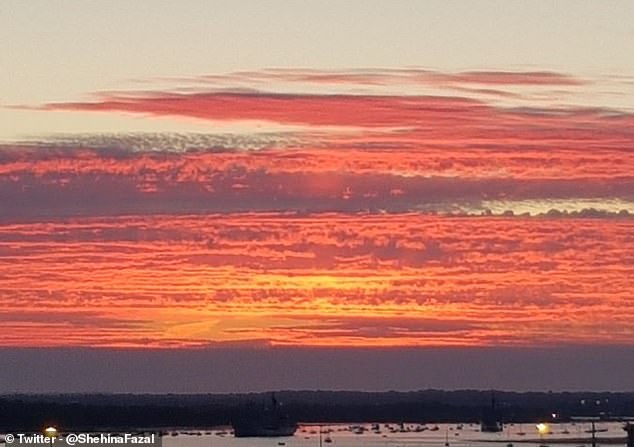
Fortunately, the smoke hangs too high in the atmosphere to damage our health, so we can safely enjoy the beautiful sunsets it creates, such as this one in Portsmouth.
Because the smoke particles are so small, more particles with short wavelengths, such as blue and green, are scattered, while particles with longer wavelengths, such as red and yellow, pass through.
So from Earth we only see the red part of the sun’s light spectrum, which gives it its unusual color.
Similar effects occur during intense sandstorms in the Sahara, the so-called ‘Scirocco’ storms, where desert dust scatters sunlight.
The wind blowing across the desert can blow fine dust high into the atmosphere. In strong winds, the dust can even blow over the UK.
In 2023, some Britons woke up to a red morning glow, a misty sky and a thin layer of dust on their cars.
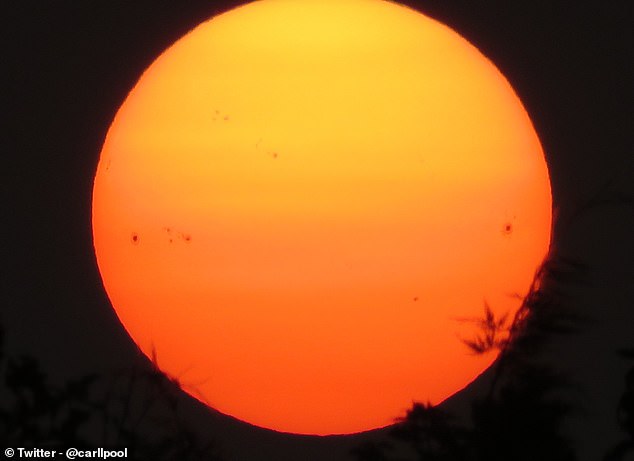
According to the Met Office, the sun could remain bright red until tonight. The sun is photographed from Merseyside
Ms Bishop said: ‘The smoke from this weekend is expected to clear early tomorrow morning, but you may see some more spectacular scenes tonight.’
That red glow will be especially good news for beginning stargazers, as a rare blue supermoon will also be visible tonight.
A supermoon appears slightly larger than normal because our lunar satellite is at its closest point to Earth in its orbit, called the perigee.
During tonight’s supermoon, the moon will appear up to 14 percent larger and 30 percent brighter than normal.
However, the combination of a red sky and a ‘blue’ moon will not produce a beautiful purple color.
That’s because the term “blue moon” only refers to the fact that this is the third full moon of the month and has nothing to do with the color.
But despite the continued atmospheric smoke, the supermoon will still appear bright and colorful tonight.
